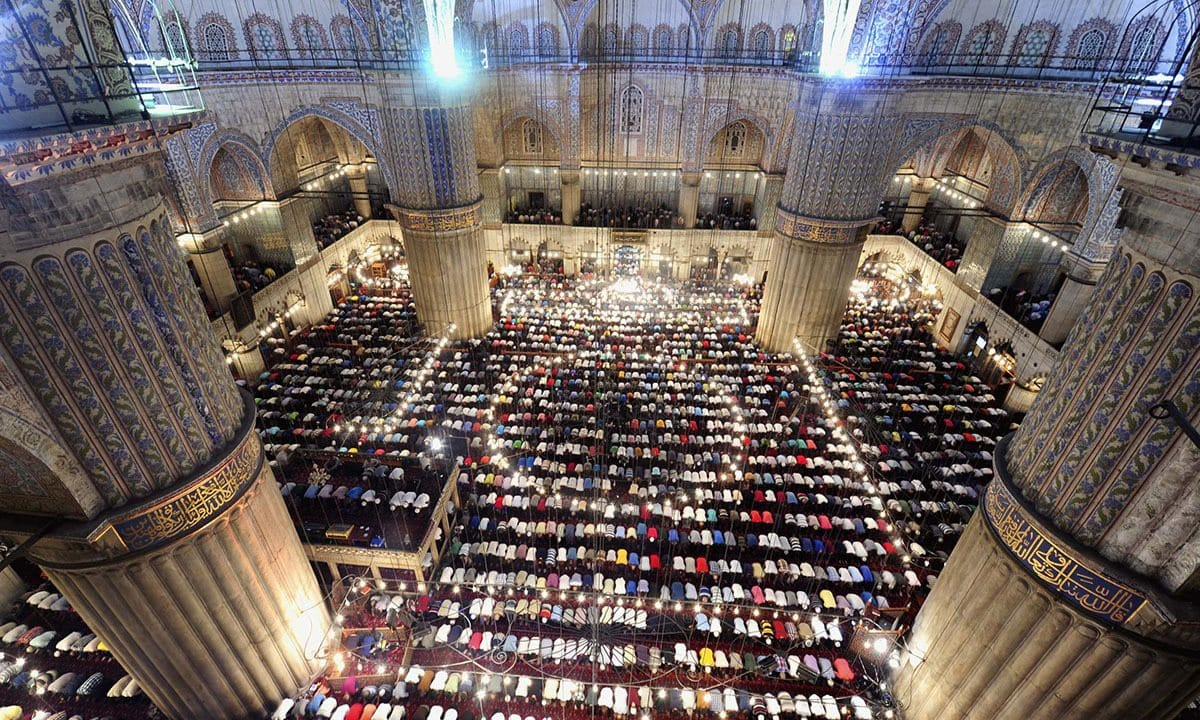Can I Pray Isha Right After Praying Maghrib? (Shafi’i)
Shafi'i Fiqh
Answered by Shaykh Abdurragmaan Khan
Question: Assalam alaykum,
Imam shafi’i and other scholars have opined that the time for maghrib lasts the duration of how long it would take to give the call to prayer, the iqama, to purify ones self and to perform five units of prayer.
Does this opinion entail that after the aforementioned time amount expires, then Isha starts? Can one take this opinion and pray Isha early?
Answer: Wa alaykum al-Salam
Shukran for your question.
Al-Imam al-Shafi’i held two opinions regarding the waqt (time) of Magrib. In his old madhhab he considered the time of magrib to extend from sunset until the disappearance of the redness in the horizon (al-shafaq al-ahmar). In his new madhhab however, he opined that the waqt of magrib only extends for the duration it takes to call the adhan, perform ablution, cover the awrah (if these two were not possible prior to the entrance of the waqt), calling the iqamah and the performance of five units of prayer (two before magrib prayer, the three of magrib and two after magrib prayer). The norm is that fatwa is usually given according to the new madhhab, as Imam al-Shafi’i stated regarding his old madhhab that, “I do not deem it permissible (to practice upon) for those transmitting it from me.”
However, in approximately thirty instances, the above question included, Shafi’i scholars gave preponderance to positions in the old madhhab of Imam al-Shafi’i. What this effectively means is that fatwa in these thirty or so instances is given according to the old opinion of the Imam. Yes, these opinions may not be attributed to the Imam specifically, but they are the official views of the Shafi’i school.
That being said, Imam al-Nawawi considered Imam al-Shafi’i to have held both opinions in his new madhhab. He said in his al-Majmu’, “this is because he (al-Shafi’i) – in his book al-Imla which is listed among his new madhhab works – suspended the view (of magrib extending to the disappearance of the redness in the horizon) upon the existence of a hadith supporting it, and a number of such hadith exist. Muslim narrates (from the Prophet sallaLlahu alayhi wasallam) that, “the waqt of magrib continues until the redness in the horizon disappears.”
Consequently, both the view of Imam al-Shafi’i and the Shafi’i jurists concurs that the time of magrib extends until the disappearance of the red horizon.
Finally, and answering your second question, the waqt of Isha according to both positions enters when the redness disappears. The difference of opinion is only in relation to the end time of magrib, not the beginning of Isha. Also, note that only the red has to disappear according to the Shafi’is, not the white as the Hanafi school opined.
And Allah knows best
Wassalam
[Shaykh] Abdurragmaan Khan
Shaykh Abdurragmaan received ijazah ’ammah from various luminaries, including but not restricted to: Habib Umar ibn Hafiz—a personality who affected him greatly and who has changed his relationship with Allah, Maulana Yusuf Karaan—the former Mufti of Cape Town; Habib ‘Ali al-Mashhur—the current Mufti of Tarim; Habib ‘Umar al-Jaylani—the Shafi‘i Mufti of Makkah; Sayyid Ahmad bin Abi Bakr al-Hibshi; Habib Kadhim as-Saqqaf; Shaykh Mahmud Sa’id Mamduh; Maulana Abdul Hafiz al-Makki; Shaykh Ala ad-Din al-Afghani; Maulana Fazlur Rahman al-Azami and Shaykh Yahya al-Gawthani amongst others.
